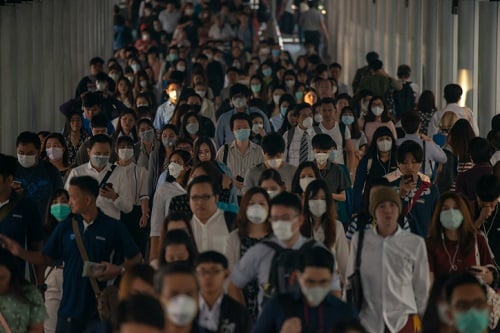

A new study by Sun Life Asia has highlighted significant financial concerns among current and future retirees across the Asia-Pacific region.
Rising living costs, coupled with inflation, are pushing many to reconsider their retirement plans, with younger workers in particular delaying retirement to build up savings.
The research, “Retirement Reimagined: Facing the Future with Confidence,” surveyed over 3,500 individuals in markets including mainland China, Hong Kong SAR, Indonesia, Malaysia, the Philippines, Singapore, and Vietnam – focusing on retirement preparedness and evolving expectations.
The findings indicated that nearly 25% of current retirees regret not saving adequately, with 66% citing insufficient savings, 52% expressing regret over underinvestment, and 34% acknowledging a lack of planning for healthcare costs.
Sun Life Asia’s research revealed that despite growing awareness of the importance of financial security, many respondents delay planning for retirement until it is nearly upon them. In fact, 59% said they would only begin addressing retirement finances within five years of retirement.
David Broom, chief client and distribution officer at Sun Life Asia, emphasised the potential risks of delayed planning in an environment where inflation can quickly erode savings.
“The retirement landscape in Asia is undergoing a profound transformation, driven by increased longevity and shifting societal norms,” he said.
He said the report showed that preparing early and maintaining financial discipline are crucial to securing a stable retirement.
The study also found that current workers are adjusting their expectations in light of economic challenges.
On average, today’s employees anticipate retiring at age 64, five years later than the current retirees’ average of 59.
The primary reasons for delaying retirement include the need to save more (61%), the desire to remain engaged (49%), and rising living expenses (43%).
The proportion of workers postponing retirement is also rising, with 17% of non-retirees indicating they have delayed their plans compared to only 8% of current retirees.
Younger workers are especially affected by concerns about inflation and costs, with 46% citing rising expenses as a reason for delaying their exit from the workforce. In comparison, only 19% of retirees reported delaying their retirement for similar reasons.
Retirees are already feeling the financial pressure, with 26% of respondents stating that they did not plan adequately for retirement costs. As a result, 20% of retirees have faced higher-than-expected expenses, mainly driven by inflation in the cost of living (76%) and healthcare (51%).
In response, many retirees have had to adjust their lifestyles. Around 73% reported reducing their expenses, while 29% have had to liquidate investments to meet financial demands.
The survey identified two distinct approaches to retirement planning, with a group dubbed the “Gold Star Planners” who have carefully prepared for retirement, and a contrasting group labelled the “Retirement Rebels,” who have done little to no planning.
Gold Star Planners generally save over 10% of their income and have insurance or pension plans in place. In contrast, Retirement Rebels often lack these safety nets.
As a result, 73% of Gold Star Planners have been able to stay within their expected budget in retirement, compared to only 31% of Retirement Rebels. Additionally, only 14% of Gold Star Planners regret their financial decisions, compared to 40% of those in the Retirement Rebels group.
Gold Star Planners were more likely to seek advice from financial professionals and reported higher confidence in both their health and financial situation in later years.
The study also pointed to rising healthcare costs as a top concern for current retirees and future retirees alike, which aligns with the findings of Manulife’s recent study showing that physical health has become a key component of Asian consumers’ financial and mental wellbeing.
With healthcare inflation expected to outpace general inflation, retirees face increasing financial pressure if they do not plan for these costs in advance.
Broom said addressing the financial and health needs of Asia’s aging population is a growing challenge.
“We have a unique opportunity to redefine what a secure and healthy retirement looks like and that means empowering people to approach their post-career years confidently with proactive plan for their finances,” he said.
As the region’s population ages — with one in four expected to be over 60 by 2050 — the need for early retirement planning is becoming more critical.
Sun Life Asia’s research suggests that focusing on long-term savings and investments, rather than relying solely on cash, could help individuals better prepare for future financial challenges.
